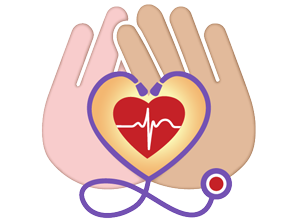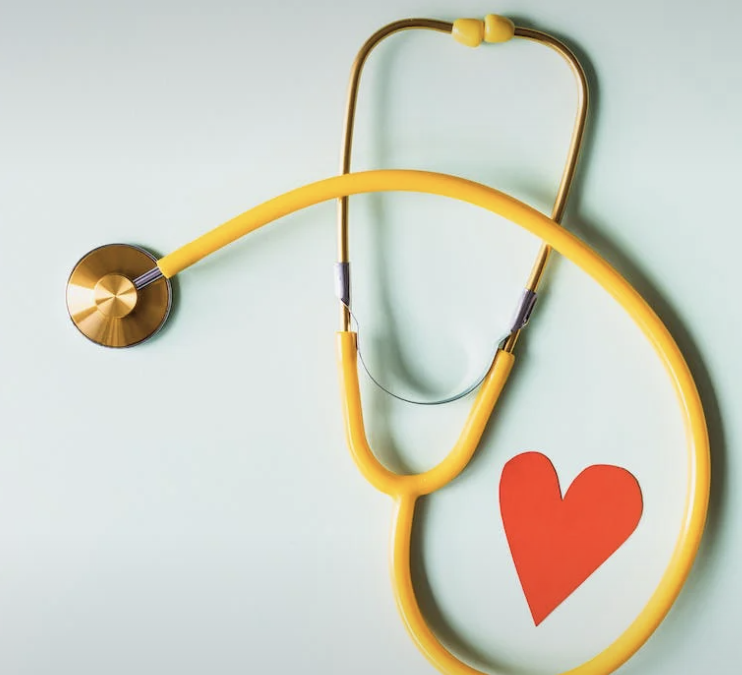You’re the physician on call. You’ve been paged to the Emergency Department, after getting paged to the Floor, while rushing through clinic. When you arrive, your patient is a 17-month-old former preemie in respiratory distress. You’re confident of the diagnosis at this time of the year when RSV takes over, and the plan is clear. Yet this distressed toddler is yanking off the oxygen mask, desating before your eyes, and kicking and screaming while you try to examine him. The task feels impossible, you feel exhausted, and deep inside you feel doubt – for your choice of profession, for your ability to succeed, for your hope to help this child, for your future as a physician. When your pager alarms a third time, you snap at the device, and those around you feel the tension. Is this the process of burning out? Or is this a really challenging day?
Burnout, measured by three main parameters–emotional exhaustion, cynicism, and depersonalization–is so widespread in medicine –it’s practically the norm. Systemic issues such as understaffing, electronic medical record glitches, insurance barriers, underappreciation, sleep deprivation, loan repayment, and missing meals are a few of the root causes of Burnout Syndrome. Screening department-wide helps us identify who is experiencing symptoms of burnout. Is it any wonder why so many screen YES? While it may be helpful to screen, so we can intervene, this follows our medical mentality to want to diagnosis and treat. Yet is“pathologizing” and labeling physicians as burned out what we really need to address this dilemma? The example shared here, along with the fact that almost half of all physicians screen positive for burnout, paints a different picture. Probably every physician has had, or will have, a day like described here at some point in her career, that leads to feelings of exhaustion, disillusion, and inadequacy. Putting understaffing and work overload aside which are major contributors that need attention, this type of day– when the task at hand feels near-impossible to do as one wishes and morally distressing– is going to be par for the course at some point in all physicians’ careers. Maybe instead of viewing this physician on such a day as on the verge of burnout, can we flip the conversation to normalizing a peak-stress day with a normal human reaction, and turn to preventive solutions. Physicians are compassionate, intelligent, productive, and determined individuals, but not super-human beings with coats of armor expected to endure all stress without natural responses.
Supports begin with simply not feeling alone, and normalizing symptoms of burnout at some point, on some days, in every doctor’s career. Every physician having “One of Those Days” needs to know it’s near-universal to feel what they feel in those shoes.
Supports begin with also addressing the systemic issues that are setting physicians up for such days. Supports continue with how we can become internally proactive and preventive, so that, when having “One of Those Days,” resilient practices naturally kick in. One way is to create daily rituals and practices that shift the autonomic nervous system toward decreased stress responsivity-even in the heat of the moment.
Back-to-back pages, interrupting workflow and focus, while tending to a non-compliant combative patient…..Can this physician BREATHE in this moment? Can this physician STAY PRESENT in this moment? Can this physician feel COMPASSION and SELF COMPASSION in this moment? The answer is YES—with training of the brain and nervous system that prepares human nature to show up breathing and calm, steady and strong, and forgiving in the eye of the storm. It is no burden to the individual to practice self-care—if done with the right intention and guidance. With the right tools, it begins to give back in such a way that sustains itself.
Let’s prepare for the situation above, starting in the beginning—in medical school. Let’s say this doctor in-training had a standardized learning experience not only to demonstrate medical mastery but to assist with preparation for the “One of Those Days.” She has already learned to build a tool kit of physiologic, mindful, and cognitive ways for healthy coping. So here she goes—
The workload is mounting, pages are disrupting, the patient is not complying, and managing the care one wishes to provide is far from ideal. A physician-in-training has prepared for this day—with acceptance for what is, remembering breathing, and staying in the present moment-however unpleasant, maintaining non-judgement and feeling compassion for all—for both the patient who is suffering and for oneself who is slipping into self-doubt. Breathing slows in a moment of pause, as the physician knows inside she is not alone, this is not a reflection of her. This is in fact a “Universal Physician Experience”—a “UPE.” She continues, staying present despite the distressing moment. At the end of the day, she intentionally titrates more self-care — pulling from a plan she had already designed for “One of Those Days” experiences. Rather than feeling labeled as Burnout, she realizes these days come, and these days go, and are part of the role that she has prepared for. Although she appears stressed in the moment to others, their viewpoint is not that she is burning out, but showing up fully present with compassion and grace.

